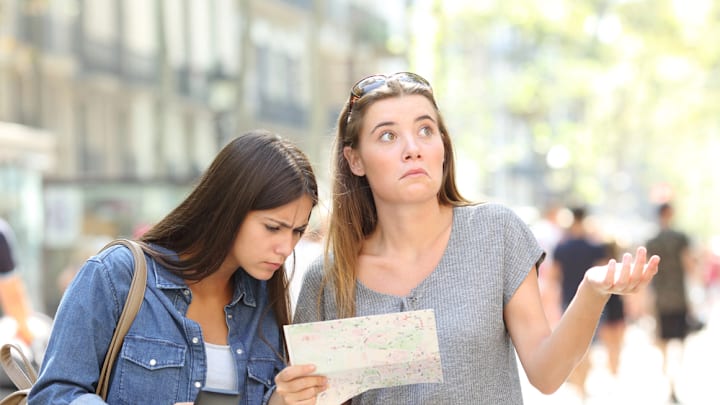How Getting Lost Became the Highlight of My Trip

It started with a wrong turn — a narrow street I thought led back to my hotel but didn’t. My phone was at 3%, the paper map was in a language I couldn’t read, and the midday heat had begun to wrap the city in a thick, humming stillness. I stood on a corner, blinking at unfamiliar street signs, aware of a slowly rising panic.
This wasn’t the charming, Instagrammable kind of “lost.” This was unplanned and inconvenient. But what began as a minor travel mishap unraveled into one of the most memorable, perspective-shifting parts of my entire trip.
The Moment the Map Failed Me
I had planned the day meticulously — museum in the morning, café by noon, local market before dinner. But a detour on the way back disrupted everything. As I kept walking, the streets began to look more residential, less polished, and completely unfamiliar.
Instead of retracing my steps, I kept moving. Something in me—part stubbornness, part curiosity—wanted to see what would happen if I stopped trying to correct the mistake and simply walked it out. Without the map, the route no longer mattered. And strangely, that started to feel like a relief.
Seeing What I Would Have Missed
Without a destination in mind, I paid closer attention to what was around me. A mural covered in mosaic glass on the side of a bakery. A girl braiding her sister’s hair on a front stoop. A courtyard echoing with a musician’s impromptu violin solo.
None of these sights were listed in a guidebook or circled on my itinerary. They weren’t curated for tourists. They simply existed, woven into the daily rhythm of the city — and I’d never have seen them if I hadn’t taken that wrong turn.
Getting lost stripped away the distraction of expectation. I wasn’t looking for something specific anymore. I was just seeing what was already there.
Letting Go of the Itinerary, Embracing the Unknown
There’s a particular kind of freedom that comes with having nowhere you’re supposed to be. Once I stopped checking my watch, the tension began to melt. I wasn’t late. I wasn’t off schedule. There was no schedule left to follow.
That shift made space for small discoveries: an alleyway blooming with potted plants, a tiny bookshop tucked between two apartment buildings, a quiet chapel open to anyone who wanted to sit in silence. I wandered without rushing, lingering when something caught my eye, trusting that the city would hold me even if I didn’t know exactly where I was.
The Kindness of Strangers
Eventually, hunger nudged me to find a place to eat. I stepped into a café that looked modest and warm. The server noticed my confusion and struck up a conversation in broken English and expressive gestures. She drew a rough map on a napkin, then offered me a plate of something she called “what my mother makes on Sundays.”
It wasn’t just delicious — it was comforting in a way that felt like belonging. That simple act of generosity reminded me that even in unfamiliar places, we can find moments of connection when we least expect them.
What Getting Lost Gave Me
By the time I found my way back to the familiar part of the city, I didn’t feel flustered. I felt fuller — not in the literal sense, though the food helped — but emotionally. I had ventured into a part of the city I never would’ve planned to visit, met people I wouldn’t have spoken to otherwise, and allowed myself to loosen the grip on control.
I didn’t take many photos that afternoon. I was too immersed in the experience. But the memories are etched more clearly than any snapshot: the sun-dappled courtyard, the café napkin map, the feeling of discovering a place as it unfolded moment by moment.
The Takeaway: Lost Isn’t Always a Detour
We’re often taught that getting lost is something to be corrected — a problem to solve quickly. But sometimes, getting lost is the exact thing we need.
It forces us to slow down, pay attention, and engage with a place — and with ourselves — in ways that structured travel doesn’t always allow. It reveals what exists outside of our plans. It teaches us to let go of the illusion that we’re in control of everything.
So the next time I take a wrong turn, I’ll pause before correcting it. Because maybe, just maybe, the best part of the trip hasn’t been planned yet — it’s waiting down a street I didn’t mean to take.